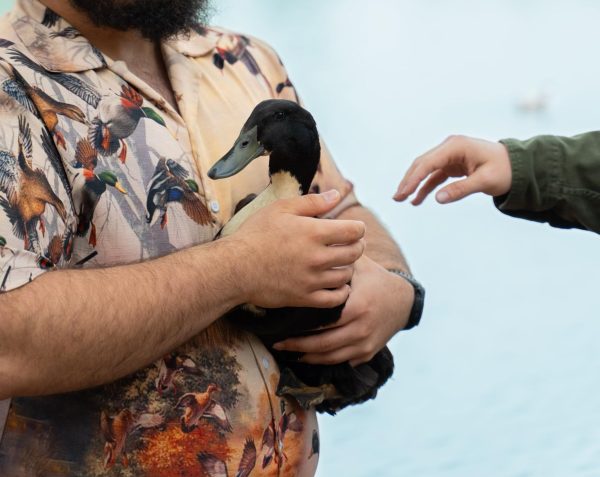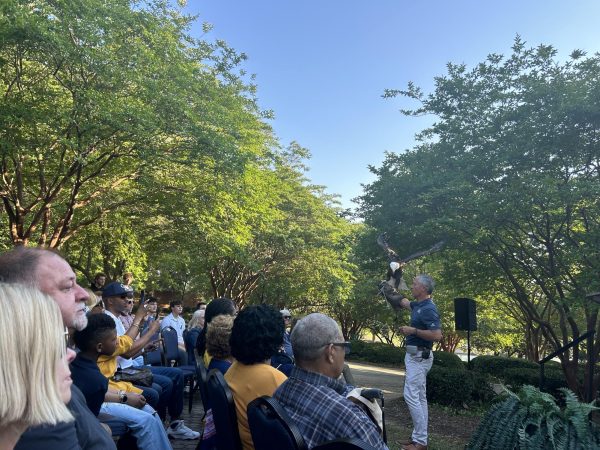Title IV aid: What you need to know
February 21, 2017
Title IV, otherwise known as financial aid, can often be a tricky road to traverse, and the path here at Georgia Southern is no exception.
Recently, the Board of Regents of the University System of Georgia took the time to clarify how students in so-called “pre-programs” could or could not quality and continue to receive financial aid.
The rundown
According to an email from the Board of Regents, under Title IV, students must be in approved degree program which then leads to a certificate, associate or bachelor degree, in order to receive financial aid funding. The students must first check-in with their desired graduate school’s program and see what prerequisites are needed in order for them to be accepted into the program.
Title IV’s funding is made available to anybody in an approved degree program, also “students enrolled in a ‘pre-program’ (including pre-majors) and may be considered a regular student enrolled in an eligible program, provided the appropriate academic requirements are met.
Popular pre-programs include pre-nursing, pre-law and pre-health.
“Many of these health professional schools require students to have a bachelor’s degree prior to matriculation,” Malerie Payne, assistant director of Pre-Health Professional Programs, said.
Payne works alongside graduating GS students to help prepare them for these health professional programs they want to work toward. Students are not required to meet with Payne, or be involved in the programming GS’ offers; however, students may not have the ability to find the same information or resources that is offered through meetings and programming with Payne.
Payne uses pre-health as an example to help further explain the process.
“For students preparing to apply to any health professional school, I challenge them to take some time to consider other interests and career possibilities,” Payne said.
Payne then explains that health professional programs are very competitive and the chances of students actually making it through the full process of acceptance to matriculation is much lower that what many students hope.
Alternative options
For those students that do not receive acceptances from programs during their first application cycle, there are several options they can pursue and applying during more than one application cycle is actually more common than students think.
One option is to take a gap year to improve in areas of their weaknesses, such as standardized test scores. Participating in shadowing experiences, earning service hours, building their resumes and practicing interviewing skills are other options.
Another popular option is to enroll in a one or two-year Master’s program in a related field according to Payne.
“It is a wise and mature step, on the part of the student to have a plan B and C in place, or a parallel plan that can help you work alongside your first career plan,” Payne said.
Some students show concern for the effect Title IV has on their federal aid funding.
“[Title IV] does sort of sway my opinion towards pursuing my masters at this point, mainly because I begin applying for higher education programs this summer and have just recently been made aware of the changes,” Rudijah Wordlaw, senior public health major, said.
Tracey Mingo, director of financial aid, says that regulations regarding Title IV are very complex.
“Once a student has fulfilled the courses in their current program of study, they will cease to be eligible for federal financial aid unless they switch to a new program of study,” Mingo said.
Financial aid does not have any role in the implementation of pre-programs other than to insure that any applicable federal regulations that pertain to both pre-programs and financial aid are followed.
Pre-programs only have a set number of courses in each program. Once a student has taken all of the courses in their program, unless they switch to a new program of study or get into the program they wish to, they will cease to receive financial aid.
“If the student fails to be in a degree seeking program or the courses he/she is taking do not count in the program of study, the student will either lose all eligibility or only have the courses counting in the program of study count for eligibility for the federal aid,” Mingo said.
State aid, such as the HOPE Scholarship, is under different requirements. State aid will pay for credits up to the 127-hour maximum.














